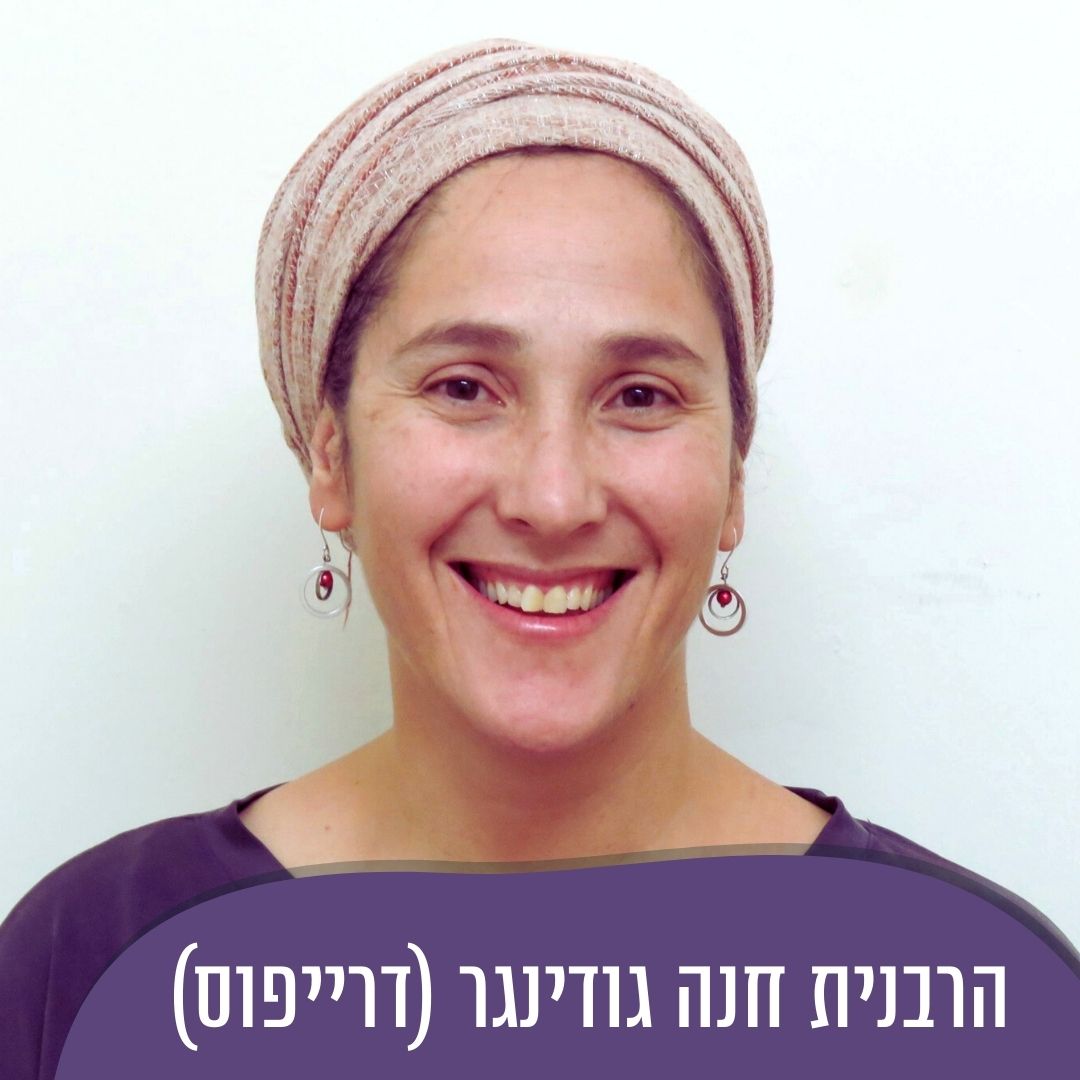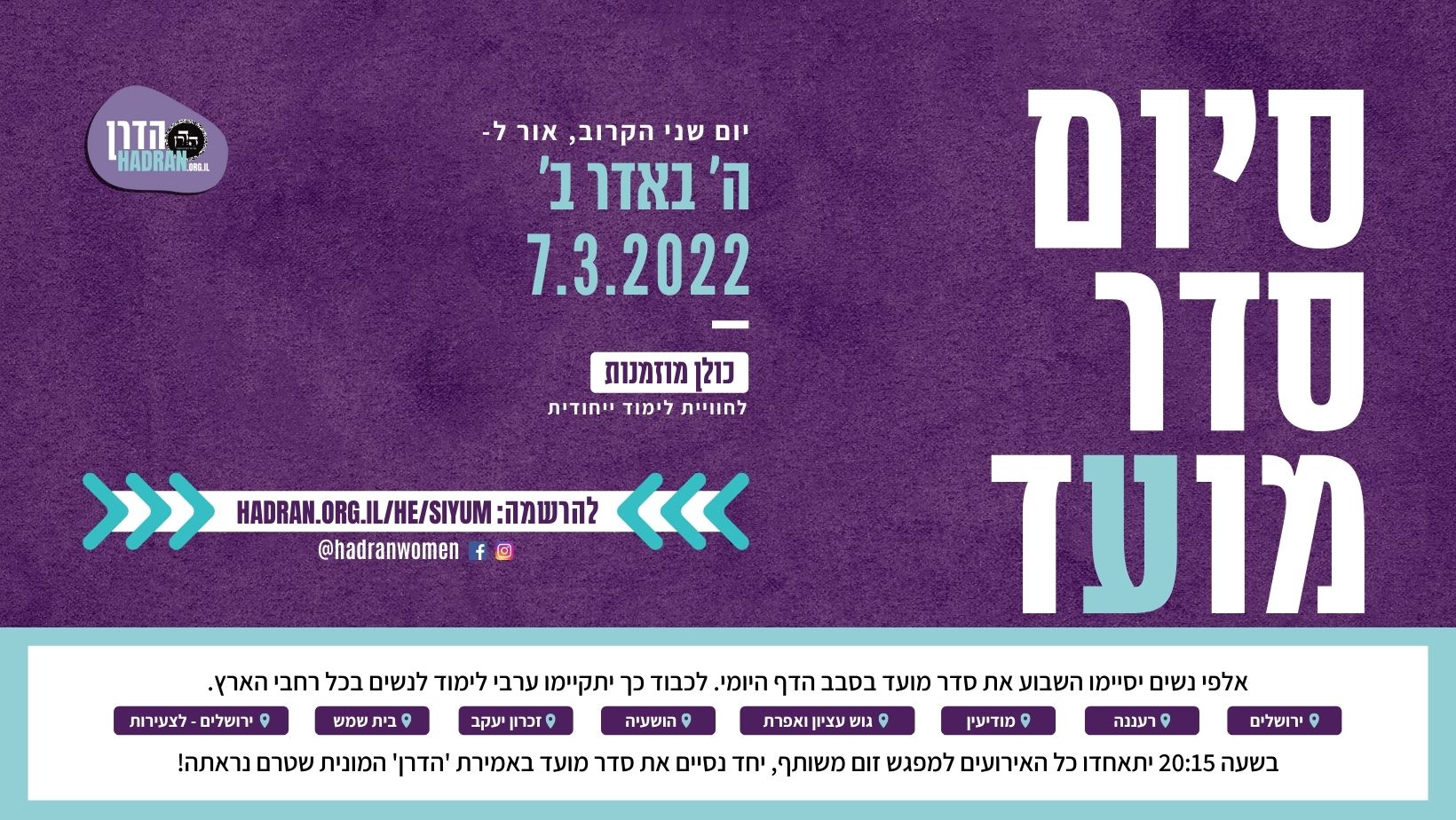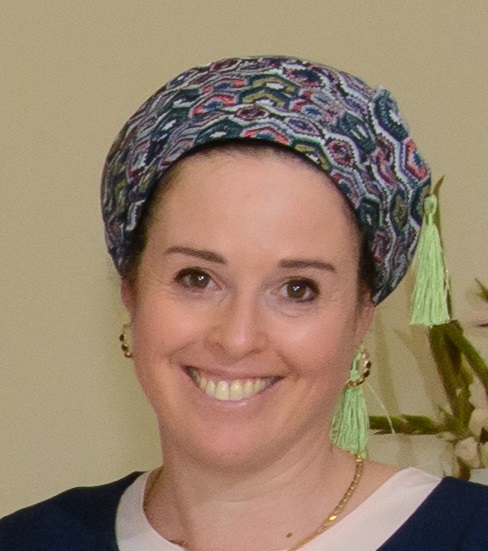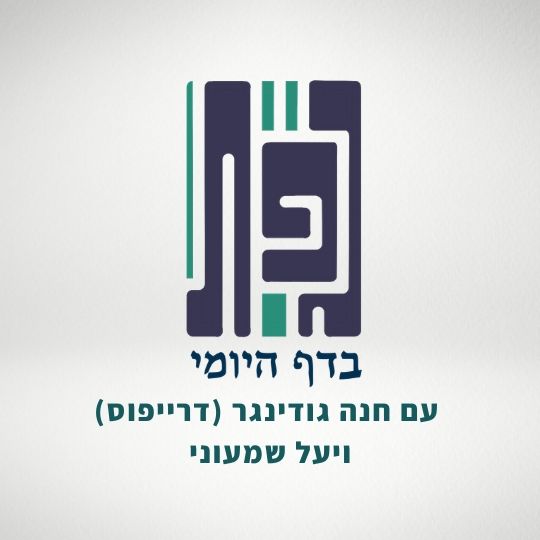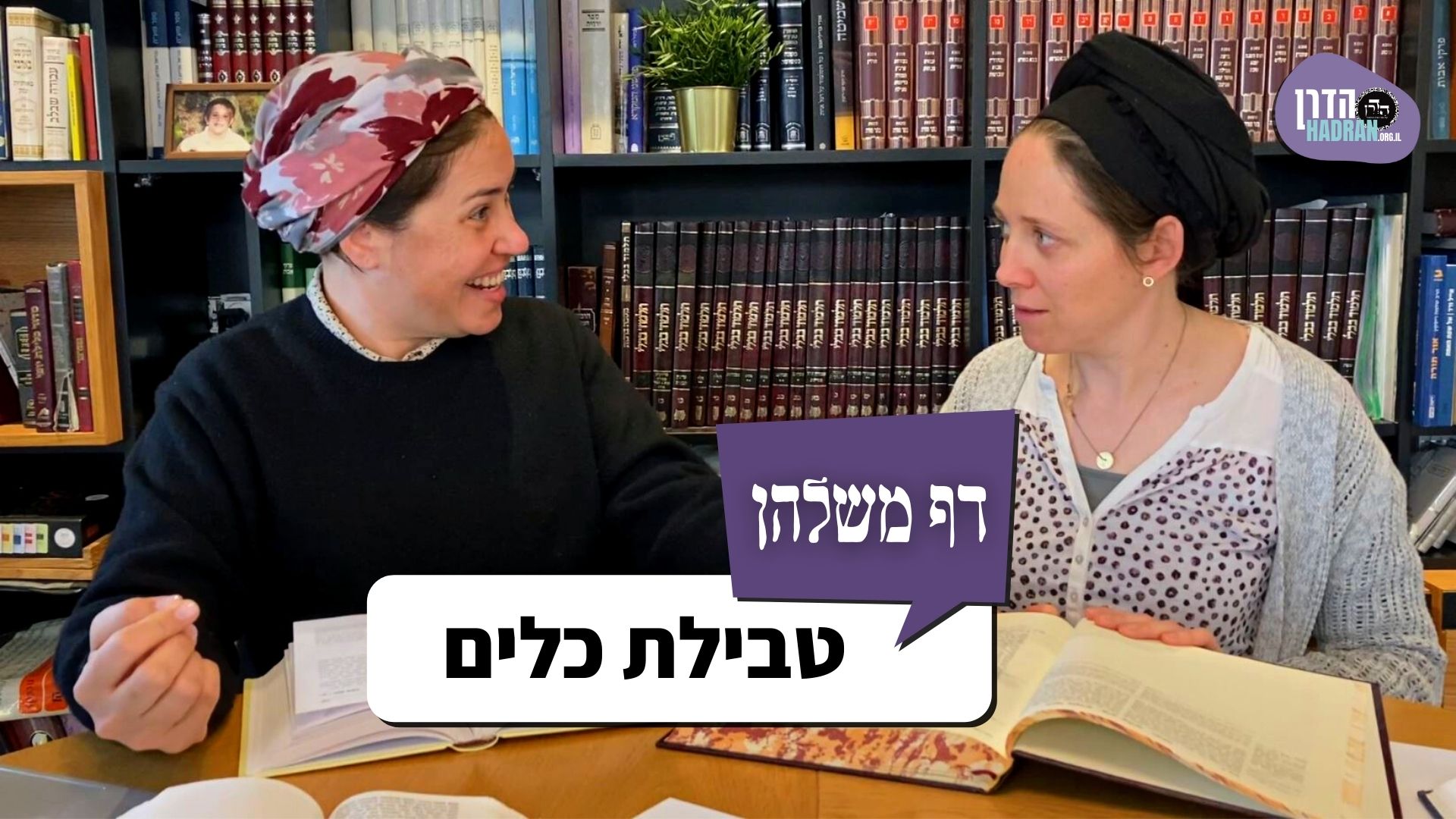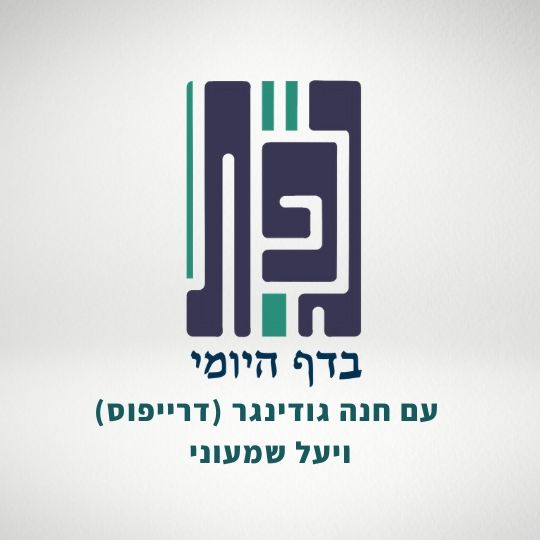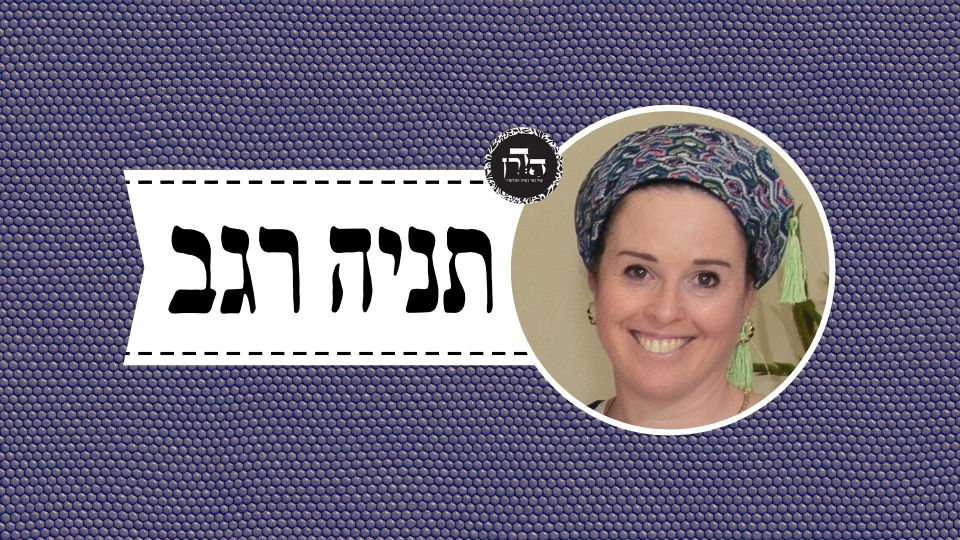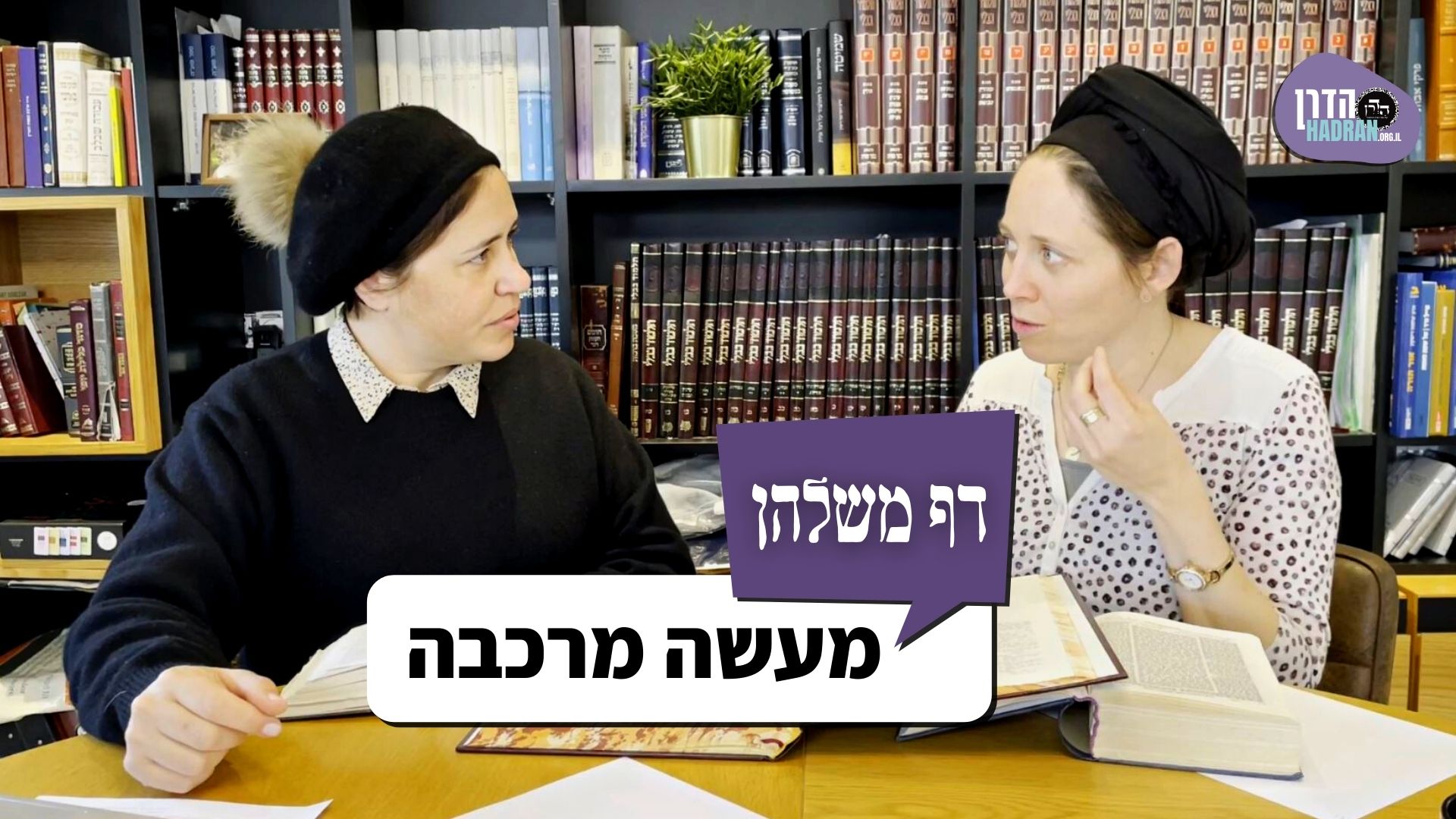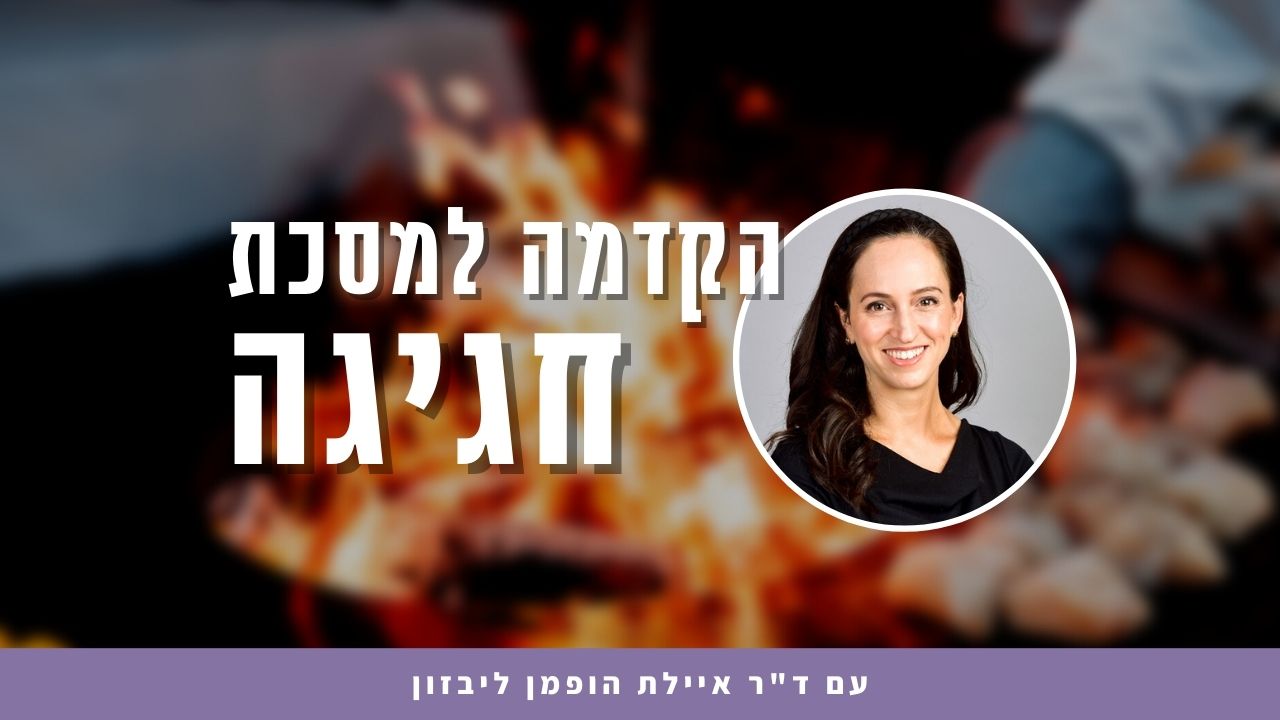חגיגה יא
בְּגִזְבָּר הַמְּסוּרוֹת לוֹ אַבְנֵי בִנְיָן עָסְקִינַן, דְּכׇל הֵיכָא דְּמַנְּחָה — בִּרְשׁוּתָא דִּידֵיהּ מַנְּחָה.
Rather, we are dealing with the treasurer of the Temple, to whom the consecrated building stones were transferred for safekeeping. The reason for the exemption is that anywhere that the stone is resting, it is considered to be resting within his domain. Consequently, he is not liable for picking up the stone or beam, as he is permitted to carry it. However, he does not have permission to give it to someone else, and therefore when he hands it over to someone else he has misused consecrated property. If so, this halakha is also perfectly logical and should not be considered like mountains suspended by a hair.
אֶלָּא מִסֵּיפָא: בְּנָאָהּ בְּתוֹךְ בֵּיתוֹ — הֲרֵי זֶה לֹא מָעַל עַד שֶׁיָּדוּר תַּחְתֶּיהָ בְּשָׁוֶה פְּרוּטָה. מִכְּדֵי שַׁנּוֹיֵי שַׁנְּיַיהּ, מָה לִי דָּר וּמָה לִי לָא דָּר, הַיְינוּ כַּהֲרָרִין הַתְּלוּיִין בִּשְׂעָרָה?
Rather, the comparison of these halakhot to mountains suspended by a hair is based on the latter clause of that same mishna: If he built the stone into his house, he has not misused consecrated property until he dwells under it an amount of time that is worth a peruta. Since he has changed the stone by incorporating it into his house, what difference is there to me if he dwelt there, and what difference is there to me if he did not dwell there? Apparently, this is the halakha considered like mountains suspended by a hair.
וּמַאי קוּשְׁיָא? דִּלְמָא לְכִדְרַב. דְּאָמַר רַב: כְּגוֹן שֶׁהִנִּיחָהּ עַל פִּי אֲרוּבָּה. אִי דָּר בֵּיהּ — אִין, לָא דָּר בֵּיהּ — לָא.
The Gemara rejects this claim. And what is the logical difficulty with this halakha? Perhaps it is stated in accordance with the opinion of Rav. As Rav said: This mishna is referring to a case where he placed the stone over a window, but he did not make any adjustment to the stone itself. If he dwelt in the house, yes, he has misused consecrated property, as he derived benefit from it. If he did not dwell in it, no, he has not misused consecrated property, as he gained no benefit from the stone.
אֶלָּא לְעוֹלָם כִּדְרָבָא. וּדְקָא קַשְׁיָא לָךְ: מִידֵּי דְּהָוֵה אַמּוֹצִיא מְעוֹת הֶקְדֵּשׁ לְחוּלִּין, הָתָם מִידָּע יָדַע דְּאִיכָּא זוּזֵי דְהֶקְדֵּשׁ, אִיבַּעְיָא לֵיהּ לְעַיּוֹנֵי. הָכָא מִי יָדַע! הַיְינוּ כַּהֲרָרִין הַתְּלוּיִין בִּשְׂעָרָה.
Rather, the reason is actually in accordance with the aforementioned opinion of Rava, who holds that the innovative element of this halakha involves a case where the homeowner remembered, which caused the agent to misuse consecrated property. And with regard to that which posed a difficulty for you, i.e., that the halakha here should be just as it is with regard to one who spends consecrated money for non-sacred purposes, the two cases are not identical. There, in the case that Rava mentioned, the agent knew that he also had consecrated coins and therefore he should have examined carefully whether this money was consecrated. Here, did the agent know that there was a possibility that the money was consecrated? This is why this halakha is like mountains suspended by a hair.
מִקְרָא מוּעָט וַהֲלָכוֹת מְרוּבּוֹת. תָּנָא: נְגָעִים וְאֹהָלוֹת, מִקְרָא מוּעָט וַהֲלָכוֹת מְרוּבּוֹת. נְגָעִים מִקְרָא מוּעָט? נְגָעִים מִקְרָא מְרוּבֶּה הוּא! אָמַר רַב פָּפָּא, הָכִי קָאָמַר: נְגָעִים — מִקְרָא מְרוּבֶּה וַהֲלָכוֹת מוּעָטוֹת, אֹהָלוֹת — מִקְרָא מוּעָט וַהֲלָכוֹת מְרוּבּוֹת.
§ The mishna explained that those matters that are like mountains suspended by a hair have little written about them in the Torah, and yet the details of their halakhot are numerous. A Sage taught in the Tosefta: The halakhot of leprosy and the halakhot of ritual impurity imparted by tents in which a corpse lies have little in the Torah and their halakhot are numerous. The Gemara asks: With regard to leprosy, is there little about their halakhot in the Torah? Leprosy is something about which there are numerous details stated in the Torah (see Leviticus, chapters 13–14). Rav Pappa said that this is what the mishna is saying: Leprosy has numerous details in the Torah but relatively few halakhot. In contrast, the case of ritual impurity imparted by tents has little in the Torah but numerous halakhot.
וּמַאי נָפְקָא מִינַּהּ? אִי מִסְתַּפְּקָא לָךְ מִילְּתָא בִּנְגָעִים — עַיֵּין בִּקְרָאֵי, וְאִי מִסְתַּפְּקָא לָךְ מִילְּתָא בְּאֹהָלוֹת — עַיֵּין בְּמַתְנִיתִין.
The Gemara asks: And what is the practical difference whether there are numerous or few references to a particular halakha in the Torah? The Gemara answers: If you are uncertain about a matter with regard to the halakhot of leprosy, delve into the verses, as it is treated extensively there. And if you are uncertain about a matter with regard to the halakhot of the ritual impurity imparted by tents, delve into the Mishna, as these halakhot are not sufficiently explicated in the Torah.
דִּינִין. מִיכְתָּב כְּתִיבָן! לֹא נִצְרְכָה אֶלָּא לְכִדְרַבִּי.
§ The mishna taught that monetary law is one of those matters that have something to support them in the Torah. The Gemara asks: Monetary laws are written in the Torah; why does the mishna merely say it has something to support it? The Gemara answers: This is necessary only according to the opinion of Rabbi Yehuda HaNasi.
דְּתַנְיָא, רַבִּי אוֹמֵר: ״נֶפֶשׁ תַּחַת נָפֶשׁ״ — מָמוֹן. אַתָּה אוֹמֵר מָמוֹן, אוֹ אֵינוֹ אֶלָּא נֶפֶשׁ מַמָּשׁ? נֶאֶמְרָה נְתִינָה לְמַטָּה. וְנֶאֶמְרָה נְתִינָה לְמַעְלָה. מָה לְהַלָּן — מָמוֹן, אַף כָּאן — מָמוֹן.
The Gemara elaborates. As it is taught in a baraita that Rabbi Yehuda HaNasi says: “But if any harm follow, then you shall give life for life” (Exodus 21:23). This verse is referring to a payment of money. Do you say money, or perhaps it is solely an actual life that is demanded? The term giving is stated below: “You shall give life for life,” and giving is stated above, in the previous verse: “And he shall give as the judges determine” (Exodus 21:22). Just as there, the giving is in the form of money, so too here, it is referring to a payment of money. Although this halakha is not explicit in the Torah, the verses lend support to it.
עֲבוֹדוֹת. מִיכְתָּב כְּתִיבָן! לֹא נִצְרְכָה אֶלָּא לְהוֹלָכַת הַדָּם. דְּתַנְיָא: ״וְהִקְרִיבוּ״, זוֹ קַבָּלַת הַדָּם.
§ The mishna stated that the halakhot of sacrificial rites have something to support them. The Gemara asks: Sacrificial rites are written explicitly in the Torah. The Gemara answers: It is necessary to state that sacrificial rites have merely something to support them only with regard to the rite of carrying the blood to the altar. As it is taught in a baraita: “And Aaron’s sons, the priests, shall offer the blood” (Leviticus 1:5); this is referring to collecting the blood, which is the stage before carrying the blood to the altar.
וְאַפְּקַהּ רַחֲמָנָא בִּלְשׁוֹן הוֹלָכָה, דִּכְתִיב: ״וְהִקְרִיב הַכֹּהֵן אֶת הַכֹּל וְהִקְטִיר הַמִּזְבֵּחָה״, וְאָמַר מָר: זוֹ הוֹלָכַת אֵבָרִים לַכֶּבֶשׁ.
And the Merciful One expressed collecting the blood in the language of carrying, i.e., by means of the term offer. As it is written: “And the priest shall offer the whole, and make it smoke upon the altar” (Leviticus 1:13). And the Master said that this term, “offer,” is not referring to sacrificing on the altar, as that is expressed by the phrase: “Make it smoke upon the altar.” Rather, this is referring to carrying the limbs to the ramp next to the altar, from where it is placed on the altar itself.
לְמֵימְרָא דְּהוֹלָכָה לָא תַּפְּקַהּ מִכְּלַל קַבָּלָה.
Evidently, the Torah is referring to collecting the blood with the same terminology it used when referring to carrying. That is to say that carrying should not be excluded from the category of collecting. In other words, all the halakhot that pertain to collecting the blood of offerings, e.g., that it must be performed by a priest with his right hand, apply equally to carrying the blood.
טְהָרוֹת. מִיכְתָּב כְּתִיבָן! לֹא נִצְרְכָה אֶלָּא לְשִׁיעוּר מִקְוֶה דְּלָא כְּתִיבָא, דְּתַנְיָא: ״וְרָחַץ אֶת בְּשָׂרוֹ בְּמַיִם״ — בְּמֵי מִקְוֶה. ״אֶת כׇּל בְּשָׂרוֹ״ — מַיִם שֶׁכׇּל גּוּפוֹ עוֹלֶה בָּהֶן, וְכַמָּה הֵן — אַמָּה עַל אַמָּה בְּרוּם שָׁלֹשׁ אַמּוֹת. וְשִׁיעֲרוּ חֲכָמִים מֵי מִקְוֶה אַרְבָּעִים סְאָה.
§ The mishna further taught that the halakhot of ritual purity have something to support them. The Gemara again asks: But ritual purity is written explicitly in the Torah. The Gemara answers: The observation that the halakhot of ritual purity merely have something to support them is necessary only for the minimum measure of a ritual bath, which is not written explicitly in the Torah. As it is taught in a baraita: “And he shall bathe his flesh in water” (Leviticus 14:9). This means in the water of a ritual bath. And it is stated: “And he shall wash all his flesh in water” (Leviticus 15:16), which indicates that it must contain water in which his whole body can enter. And how much water is this? One cubit by one cubit with a height of three cubits. And the Sages estimated that the measure for ritual bath water is forty se’a.
טְמָאוֹת. מִיכְתָּב כְּתִיבָן! לֹא נִצְרְכָא אֶלָּא לְכַעֲדָשָׁה מִן הַשֶּׁרֶץ, דְּלָא כְּתִיבָא. דְּתַנְיָא: ״בָּהֶם״ —
§ The mishna stated that the halakhot of ritual impurity also have something to support them. Once again the Gemara asks: Ritual impurity is written explicitly in the Torah. The Gemara answers: This is necessary only with regard to the size of a lentil-bulk from a creeping animal, which is not written. As it is taught in a baraita with regard to a verse that deals with creeping animals: “Whoever touches them when they are dead shall be impure” (Leviticus 11:31).
יָכוֹל בְּכוּלָּן, תַּלְמוּד לוֹמַר: ״מֵהֶם״. יָכוֹל בְּמִקְצָתָן — תַּלְמוּד לוֹמַר: ״בָּהֶם״.
One might have thought that only someone who touches an entire, whole creeping animal becomes ritually impure. The verse states: “And upon whatever any of them falls, when they are dead, it shall be impure” (Leviticus 11:32). “Of them” indicates that this halakha applies even if one comes into contact with a part of them. One might have thought that even some of them suffices to impart impurity. The verse states: “Them,” i.e., all of them. This conclusion apparently contradicts the first ruling.
הָא כֵּיצַד? עַד שֶׁיַּגִּיעַ בְּמִקְצָתוֹ שֶׁהוּא כְּכוּלּוֹ. שִׁיעֲרוּ חֲכָמִים בְּכַעֲדָשָׁה, שֶׁכֵּן חוֹמֶט — תְּחִלָּתוֹ בְּכַעֲדָשָׁה. רַבִּי יוֹסֵי בְּרַבִּי יְהוּדָה אוֹמֵר: כִּזְנַב הַלְּטָאָה.
How can this apparent contradiction be resolved? One does not become impure until he touches some of it that is like the whole, i.e., a significant amount. And the Sages estimated this measure as the size of a lentil-bulk. The reason is that in its early stages, the ḥomet, the smallest of these creeping animals, is the size of a lentil-bulk. Rabbi Yosei, son of Rabbi Yehuda, says: The size of a lentil-bulk is that of a lizard’s tail, which is considered a part that is like the whole. The tail of a lizard can be cut off easily, and as it continues to twitch even after it has been cut off, it has the appearance of life. Consequently, it is fitting to label it as a part that is like the whole.
עֲרָיוֹת. מִיכְתָּב כְּתִיבָן! לֹא נִצְרְכָה
§ The mishna further taught that the halakhot of those with whom relations are forbidden have something to support them. The Gemara asks: The halakhot of those with whom relations are forbidden are written explicitly in the Torah. The Gemara answers: This is necessary only
לְבִתּוֹ מֵאֲנוּסָתוֹ, דְּלָא כְּתִיבָא.
with regard to his daughter born from the woman he raped, which is not written explicitly in the Torah. It is forbidden for this man to have sexual relations with this daughter, despite the fact that she is not the daughter of his wife, as he did not marry her mother.
דְּאָמַר רָבָא, אֲמַר לִי רַבִּי יִצְחָק בַּר אַבְדִּימִי: אָתְיָא ״הֵנָּה״ ״הֵנָּה״.
As Rava said: Rabbi Yitzḥak bar Avdimi said to me that this halakha is derived by means of a verbal analogy between the term they [hena], an unusual form of this word, written in one context, and the same term, they, written elsewhere. As it is written: “The nakedness of a woman and her daughter…you shall not take…they [hena] are near kinswomen; it is lewdness” (Leviticus 18:17). And it is written: “The nakedness of your son’s daughter, or of your daughter’s daughter, even their nakedness you shall not uncover; for they [hena] are your own nakedness” (Leviticus 18:10). This indicates that every daughter, even from the rape of a woman who is not one’s wife, is forbidden, just like one’s daughter from his wife.
אָתְיָא ״זִימָּה״ ״זִימָּה״.
Furthermore, the punishment for this transgression is derived from a verbal analogy between: “It is lewdness [zima]” (Leviticus 18:17), which is written with regard to a woman and her daughter, and the same term “lewdness” that appears elsewhere, as it is stated: “And if a man take with his wife also her mother, it is lewdness [zima]: They shall be burnt with fire, both he and they” (Leviticus 20:14).
הֵן הֵן גּוּפֵי תוֹרָה. הָנֵי — אִין, הָנָךְ לָא? אֶלָּא אֵימָא: הֵן וְהֵן גּוּפֵי תוֹרָה.
§ The mishna taught: These [hen hen] are the essential parts of the Torah. The Gemara asks: These, the topics mentioned in the mishna, which are not written explicitly but for which there is ample basis in the Torah, yes, they are the essential parts of Torah, whereas those other categories listed in the mishna that are written explicitly, no, they are not essential? Rather, one must say that both these and those [hen vehen] are the essential parts of the Torah. Every part of the Torah is essential, whether or not it is written explicitly.
הֲדַרַן עֲלָךְ הַכֹּל חַיָּיבִין
אֵין דּוֹרְשִׁין בָּעֲרָיוֹת בִּשְׁלֹשָׁה, וְלֹא בְּמַעֲשֵׂה בְרֵאשִׁית בִּשְׁנַיִם, וְלֹא בַּמֶּרְכָּבָה בְּיָחִיד, אֶלָּא אִם כֵּן הָיָה חָכָם וּמֵבִין מִדַּעְתּוֹ.
MISHNA: One may not expound the topic of forbidden sexual relations before three or more individuals; nor may one expound the act of Creation and the secrets of the beginning of the world before two or more individuals; nor may one expound by oneself the Design of the Divine Chariot, a mystical teaching with regard to the ways God conducts the world, unless he is wise and understands most matters on his own.
כׇּל הַמִּסְתַּכֵּל בְּאַרְבָּעָה דְּבָרִים, רָתוּי לוֹ כְּאִילּוּ לֹא בָּא לָעוֹלָם: מָה לְמַעְלָה, מָה לְמַטָּה, מָה לְפָנִים, וּמָה לְאָחוֹר. וְכׇל שֶׁלֹּא חָס עַל כְּבוֹד קוֹנוֹ, רָתוּי לוֹ שֶׁלֹּא בָּא לָעוֹלָם.
The mishna continues in the same vein: Whoever looks at four matters, it would have been better for him had he never entered the world: Anyone who reflects upon what is above the firmament and what is below the earth, what was before Creation, and what will be after the end of the world. And anyone who has no concern for the honor of his Maker, who inquires into and deals with matters not permitted to him, deserves to have never come to the world.
גְּמָ׳ אָמְרַתְּ בְּרֵישָׁא: וְלֹא בַּמֶּרְכָּבָה בְּיָחִיד, וַהֲדַר אָמְרַתְּ: אֶלָּא אִם כֵּן הָיָה חָכָם וּמֵבִין מִדַּעְתּוֹ!
GEMARA: The Gemara poses a question: You said in the first clause of the mishna: Nor may one expound the Design of the Divine Chariot by oneself, which indicates that the topic may not be learned at all, and yet you subsequently said: Unless he is wise and understands most things on his own, which indicates that an individual is permitted to study the Design of the Divine Chariot.
הָכִי קָאָמַר: אֵין דּוֹרְשִׁין בָּעֲרָיוֹת לִשְׁלֹשָׁה, וְלֹא בְּמַעֲשֵׂה בְרֵאשִׁית לִשְׁנַיִם, וְלֹא בַּמֶּרְכָּבָה לַיָּחִיד, אֶלָּא אִם כֵּן הָיָה חָכָם וּמֵבִין מִדַּעְתּוֹ.
The Gemara explains: This is what the mishna is saying: One may not expound the topic of forbidden sexual relations before three students, nor the act of Creation before two, nor may one teach the Divine Chariot to one, unless that student was wise and understands on his own.
אֵין דּוֹרְשִׁין בָּעֲרָיוֹת בִּשְׁלֹשָׁה. מַאי טַעְמָא? אִילֵּימָא מִשּׁוּם דִּכְתִיב: ״אִישׁ אִישׁ אֶל כׇּל שְׁאֵר בְּשָׂרוֹ״. ״אִישׁ אִישׁ״ — תְּרֵי, ״שְׁאֵר בְּשָׂרוֹ״ — חַד, וְאָמַר רַחֲמָנָא: ״לֹא תִקְרְבוּ לְגַלּוֹת עֶרְוָה״.
§ The Gemara continues to clarify the mishna, which reads: One may not expound the topic of forbidden sexual relations before three individuals. What is the reason for this? If we say it is because it is written: “None of you [ish, ish] shall approach any near of kin to uncover their nakedness” (Leviticus 18:6). Ish, ish, literally means: Man, man. It is understood as an allusion to the number of students permitted to study the topic. This is as it is explained immediately: “Man, man” equals two; “any near of kin to him” is one; and the Merciful One states: “You shall not approach to uncover their nakedness,” which indicates that one may not expound the halakhot of forbidden sexual relations in the presence of three individuals.
אֶלָּא מֵעַתָּה, דִּכְתִיב: ״אִישׁ אִישׁ כִּי יְקַלֵּל אֱלֹהָיו״, ״אִישׁ אִישׁ אֲשֶׁר יִתֵּן מִזַּרְעוֹ לַמּוֹלֶךְ״, הָכִי נָמֵי?
They ask: If that is so, then what of this verse: “Any man [ish, ish] who curses his God” (Leviticus 24:15), or “Any man [ish, ish] who gives of his seed to the Molekh” (Leviticus 20:2), which is a form of idol worship? In both cases the double expression implies the number two. So too there, will you say that it is prohibited to teach these halakhot before two individuals?
אֶלָּא הָנְהוּ — מִיבְּעֵי לֵיהּ לְרַבּוֹת אֶת הַגּוֹיִם, שֶׁמּוּזְהָרִין עַל בִּרְכַּת הַשֵּׁם וְעַל עֲבוֹדָה זָרָה כְּיִשְׂרָאֵל.
The Gemara answers: Rather, those instances of the double expression: Man, man, are required for him, the tanna, in order to include gentiles, who are commanded with regard to blessing, a euphemism for cursing, God, and with regard to idol worship just as Jews are commanded.
הַאי נָמֵי מִיבְּעֵי לֵיהּ לְרַבּוֹת אֶת הַגּוֹיִם שֶׁמּוּזְהָרִין עַל הָעֲרָיוֹת כְּיִשְׂרָאֵל.
But if so, this mention of “man, man” in the case of forbidden relations is also required for him to include gentiles, who are commanded with regard to forbidden sexual relations, as Jews are.
אֶלָּא, מִדִּכְתִיב: ״וּשְׁמַרְתֶּם אֶת מִשְׁמַרְתִּי״, ״וּשְׁמַרְתֶּם״ — תְּרֵי, ״מִשְׁמַרְתִּי״ — חַד, וְאָמַר רַחֲמָנָא: ״לְבִלְתִּי עֲשׂוֹת מֵחֻקּוֹת הַתּוֹעֵבוֹת״.
Rather, the Gemara rejects the previous explanation, and suggests that the prohibition against teaching three is derived from the following verse stated with regard to forbidden sexual relations: “And you shall observe My charge” (Leviticus 18:30), which is explained as follows: “And you shall observe [ushmartem],” in the plural, indicates at least two; “My charge” is one; and the Merciful One states at the conclusion of this verse: “That you do not perform any of these abominable customs” (Leviticus 18:30), indicating that this topic may not be taught to three.
אֶלָּא מֵעַתָּה דִּכְתִיב: ״וּשְׁמַרְתֶּם אֶת הַשַּׁבָּת״, ״וּשְׁמַרְתֶּם אֶת הַמַּצּוֹת״, ״וּשְׁמַרְתֶּם אֵת מִשְׁמֶרֶת הַקֹּדֶשׁ״, הָכִי נָמֵי?
The Gemara asks: However, if that is so, then what of that which is written: “And you shall observe the Shabbat” (Exodus 31:14), and “And you shall observe the festival of matzot” (Exodus 12:17), and “And you shall observe the charge of the sacred things” (Numbers 18:5); so too, will you say that none of these subjects may be taught to three?
אֶלָּא אָמַר רַב אָשֵׁי: מַאי אֵין דּוֹרְשִׁין בָּעֲרָיוֹת בִּשְׁלֹשָׁה — אֵין דּוֹרְשִׁין בְּסִתְרֵי עֲרָיוֹת בִּשְׁלֹשָׁה.
Rather, Rav Ashi said: These scriptural allusions are all unacceptable. What is the meaning of: One may not expound the topic of forbidden sexual relations before three? It means: One may not expound the concealed laws of forbidden sexual relations before three. The prohibition against teaching before three applies to halakhot of forbidden sexual relations that are not explicitly stated in the Torah but are derived by expounding the verses or through analogy.
מַאי טַעְמָא — סְבָרָא הוּא. בֵּי תְרֵי כִּי יָתְבִי קַמֵּי רַבַּיְיהוּ, חַד שָׁקֵיל וְטָרֵי בַּהֲדֵי רַבֵּיהּ, וְאִידַּךְ מַצְלֵי אוּדְנֵיהּ לִגְמָרָא. תְּלָתָא, חַד שָׁקֵיל וְטָרֵי בַּהֲדֵי רַבֵּיהּ, וְהָנָךְ תְּרֵי שָׁקְלוּ וְטָרוּ בַּהֲדֵי הֲדָדֵי, וְלָא יָדְעִי מַאי קָאָמַר רַבַּיְיהוּ, וְאָתוּ לְמִישְׁרֵי אִיסּוּרָא בָּעֲרָיוֹת.
What is the reason? It is due not to a biblical allusion, but rather it is based on logical reasoning: When two students sit before their teacher, one of them is typically involved in a discussion of halakha with his teacher, while the other lends his ear to listen to the teaching. However, if there are three students, one of them is involved in a discussion with his teacher while the other two are engaged in a discussion with one another, and they do not know what their teacher is saying, and may come to render permitted a forbidden relation by following their own reasoning rather than the explanation provided by their teacher.
אִי הָכִי, כׇּל הַתּוֹרָה נָמֵי!
The Gemara raises a difficulty: If so, the entire Torah should likewise be taught only to two individuals, to prevent similar errors.
עֲרָיוֹת שָׁאנֵי, דְּאָמַר מָר: גָּזֵל וַעֲרָיוֹת — נַפְשׁוֹ [שֶׁל אָדָם] מְחַמְּדָתָן וּמִתְאַוָּה לָהֶם.
The Gemara answers: The halakha of forbidden sexual relations is different, for the Master said: Robbery and forbidden sexual relations are sins that one’s soul covets and lusts after. Therefore, we are concerned that one who has not properly studied these matters with his teacher will rule leniently for himself.
אִי הָכִי, גָּזֵל נָמֵי? עֲרָיוֹת, בֵּין בְּפָנָיו בֵּין שֶׁלֹּא בְּפָנָיו נְפִישׁ יִצְרֵיהּ. גָּזֵל, בְּפָנָיו — נְפִישׁ יִצְרֵיהּ, שֶׁלֹּא בְּפָנָיו — לָא נְפִישׁ יִצְרֵיהּ.
The Gemara asks: If so, robbery should also not be taught to more than two, for this very reason. The Gemara responds: There is a difference between the lust for forbidden sexual relations and the lust for robbery. In the case of those with whom relations are forbidden, his evil inclination is strong whether or not the objects of desire are before him. With regard to robbery, however, if the object presents a direct temptation before him his inclination is strong, but when it is not before him his inclination is not strong, and we are therefore less concerned.
״וְלֹא בְּמַעֲשֵׂה בְרֵאשִׁית בִּשְׁנַיִם״. מְנָא הָנֵי מִילֵּי? דְּתָנוּ רַבָּנַן: ״כִּי שְׁאַל נָא לְיָמִים רִאשׁוֹנִים״ — יָחִיד שׁוֹאֵל, וְאֵין שְׁנַיִם שׁוֹאֲלִין.
§ It is taught in the mishna: “Nor the act of Creation before two.” The Gemara poses a question: From where are these matters derived? The Gemara explains: As the Sages taught that the verse states: “For ask now of the days past, which were before you” (Deuteronomy 4:32); since this verse is stated in the singular, it teaches that an individual may ask questions with regard to Creation, i.e., “the days past,” but two may not ask, which indicates that one may teach such matters to only one student.
יָכוֹל יִשְׁאַל אָדָם קוֹדֶם שֶׁנִּבְרָא הָעוֹלָם, תַּלְמוּד לוֹמַר: ״לְמִן הַיּוֹם אֲשֶׁר בָּרָא אֱלֹהִים אָדָם עַל הָאָרֶץ״.
One might have thought that a person may ask questions with regard to matters preceding the creation of the world. Therefore, the continuation of the verse states: “Since the day that God created man upon the earth,” but not earlier.
יָכוֹל לֹא יִשְׁאַל אָדָם מִשֵּׁשֶׁת יְמֵי בְרֵאשִׁית, תַּלְמוּד לוֹמַר: ״לְיָמִים רִאשׁוֹנִים אֲשֶׁר הָיוּ לְפָנֶיךָ״.
One might have thought that a person may not ask questions with regard to matters that occurred during the six days of Creation before the creation of man. Therefore, the verse states: “For ask now of the days past, which were before you,” indicating that one may inquire about the days preceding the creation of man.
יָכוֹל יִשְׁאַל אָדָם מָה לְמַעְלָה וּמָה לְמַטָּה מָה לְפָנִים וּמָה לְאָחוֹר — תַּלְמוּד לוֹמַר: ״וּלְמִקְצֵה הַשָּׁמַיִם וְעַד קְצֵה הַשָּׁמָיִם״, מִלְּמִקְצֵה הַשָּׁמַיִם וְעַד קְצֵה הַשָּׁמָיִם — אַתָּה שׁוֹאֵל, וְאֵין אַתָּה שׁוֹאֵל מָה לְמַעְלָה מָה לְמַטָּה, מָה לְפָנִים מָה לְאָחוֹר.
One might have thought that a person may ask questions with regard to what is above, what is below, what was before, and what is after the world. Therefore, the same verse states: “From one end of the heavens to the other” (Deuteronomy 4:32), which is explained as follows: With regard to that which is from one end of the heavens to the other, within the boundaries of the world, you may ask, but you may not ask what is above, what is below, what was before, or what is after.

